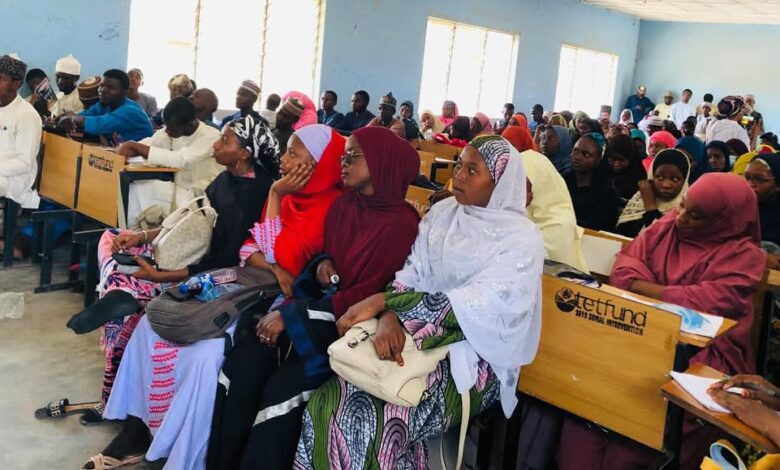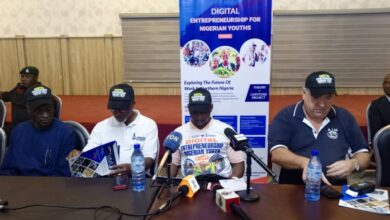CITAD Marks Press Freedom Day with AI Journalism Talk

As part of the 2025 World Press Freedom Day, the Centre for Information Technology and Development (CITAD) held a session for students of the Mass Communication Department at Kano State Polytechnic, focusing on the impact of Artificial Intelligence (AI) on journalism.
Under the theme “The Growing Influence of Artificial Intelligence (AI) on Journalism and Its Implications for Press Freedom Globally,” the discussion examined how AI is changing newsrooms and raising concerns about ethics, job security, and press freedom.
Ali Sabo, CITAD’s Digital Rights Officer, told students that while AI is a tool journalists can use, it comes with risks.
“AI can generate content faster and cheaper, but it lacks human judgment,” he said. “This opens the door to misinformation, misrepresentation of facts, and even job losses in the media industry.”
Sabo advised students to develop strong editorial skills and understand how to use AI properly. “Be creative, be innovative, and stay curious. Don’t allow technology to replace you—learn how to make it work for you,” he added.
Ali Isa of MetroGate Innovations noted that AI is already taking over some journalistic roles in other countries, and the trend is emerging in Nigeria.
“We are heading toward a future where journalists might not be writing the news themselves but supervising AI-generated content,” Musa said. “Journalists need to understand the tools, detect algorithmic bias, and ensure that ethical standards are upheld.”
Isa said that while AI can assist journalists, it should not control the narrative. “Journalism must remain human at its core—fact-checked, balanced, and accountable,” he added.
Salihu Sule Khalid of the Mass Communication Department said AI can help newsrooms operate more efficiently but warned against its uncritical adoption.
“AI can amplify powerful voices and marginalize others, thereby posing a risk to press pluralism and democracy,” Khalid warned. “It’s vital that journalists use AI with caution and uphold ethical principles.”
He called on journalists to maintain independence, creativity, and critical thinking.
In her remarks, Maryam Muhammad, a lecturer at Maryam Abacha American University of Nigeria, urged students to keep the public interest central to their work.
“The challenge is not the tool itself but how we use it,” she said. “Responsible journalism still depends on human values—truth, fairness, and accountability.”
Some of the students who attended the lecture also shared their thoughts. Fatima Ahmad, an ND student, said the session opened her eyes to both the promise and the dangers of AI in journalism. “Before today, I saw AI as just a tech thing far from us. Now I see how it can affect my future job as a reporter. We have to learn it, but we also have to guide it,” she said.
Similarly, Bashir Muhammad, a final-year student, expressed concern about the risk of AI being used to spread fake news. “If we leave AI unchecked, it could ruin the credibility of our profession. That’s why we, as future journalists, must be watchdogs not just of government but also of technology,” he said.
The post CITAD Marks Press Freedom Day with AI Journalism Talk appeared first on Kano Times.





